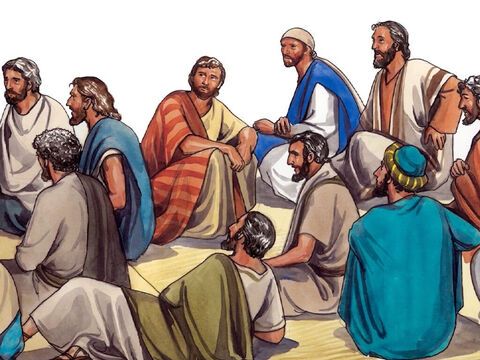Who Is an Apostle?
An apostle is a messenger and special envoy of the Lord Jesus Christ, directly chosen and commissioned by Him for foundational work in the early Church. The Greek word apostolos means “one sent forth with authority.” An apostle is not simply a preacher or missionary, but someone entrusted with unique authority, miracles, and doctrine-building for the Church. According to Ephesians 2:20, the Church is “built upon the foundation of the apostles and prophets, Jesus Christ himself being the chief corner stone.”
First Apparition of Apostleship
The concept of apostleship first appears when Jesus personally called twelve men during His earthly ministry to follow Him, learn from Him, and later be sent forth. In Luke 6:13, it says, “And when it was day, he called unto him his disciples: and of them he chose twelve, whom also he named apostles.” This marked the beginning of the apostolic office.
Apostles in the Bible
The original Twelve Apostles were: Peter, James (son of Zebedee), John, Andrew, Philip, Bartholomew, Matthew, Thomas, James (son of Alphaeus), Simon the Zealot, Judas (brother of James), and Judas Iscariot. After Judas’ betrayal and death, Matthias was chosen as his replacement (Acts 1:26). Later, Paul the Apostle was uniquely called by Christ post-ascension (Acts 9), making him “as one born out of due time” (1 Corinthians 15:8).
There were no more apostles added beyond these except a few special mentions (like Barnabas in Acts 14:14), but none had the full qualifications of the Twelve and Paul.
Qualifications of an Apostle
To be considered an apostle in the biblical sense, one must meet specific qualifications:
-
Personally seen the risen Christ – 1 Corinthians 9:1
-
Directly chosen by Christ Himself – Galatians 1:1
-
Witnessed Jesus’ baptism to ascension – Acts 1:21–22
-
Endowed with miraculous signs and wonders – 2 Corinthians 12:12
-
Given direct revelation and doctrine – Galatians 1:11–12
-
Instrumental in laying the foundation of the church – Ephesians 2:20
No one today meets these biblical standards.
Apostasy of Judas Iscariot
Judas Iscariot was one of the original twelve, handpicked by Christ, yet he became the first false apostle. Jesus called him “a devil” in John 6:70, and though he walked with Christ outwardly, he betrayed Him for thirty pieces of silver. Judas proves that mere position or proximity to Jesus does not guarantee salvation.
Modern Apostles Are False Apostles
The idea of “modern-day apostles” contradicts the completed foundation laid by the original apostles. The Bible does not support the continuation of this office. Revelation 2:2 says, “Thou hast tried them which say they are apostles, and are not, and hast found them liars.” Anyone today who claims to be an apostle in the biblical sense is a false apostle. These modern claimants lack the miracles, the divine calling, and the authority given only to the first-century apostles.
Examples of Modern “Apostles”
Figures such as David Owuor, Uebert Angel, Grace Lubega and Bill Johnson claim to be apostles today, but they do not meet the scriptural requirements. Their teachings often distort the gospel, promote themselves above Scripture, and lead people into deception. These men elevate experience, prophecy, or signs above the clear Word of God.
Some of them have built cult-like followings, and others distort miracles for fame and money. They should be tested by Scripture and rejected (Romans 16:17–18).
Final Warning
The apostolic office is not a continuing position. The canon of Scripture is closed. The foundation of the church has already been laid, and no one has the right to claim new revelations or divine status above God’s Word. The danger of false apostles lies in their power to deceive, divert, and destroy. Christians are warned in 2 Corinthians 11:13–14:
“For such are false apostles, deceitful workers, transforming themselves into the apostles of Christ. And no marvel; for Satan himself is transformed into an angel of light.”
Believers must cling to the Bible as the final authority. Test every teacher. Reject every claim that contradicts the apostolic doctrine recorded in Scripture. True apostles have spoken, and they still speak today, not through new dreams, but through the unchanging Word of God.






Anonymous
This is very clear and helpful, I was always confused about how many claim to be apostles today.
Thanks
August 7, 2025, 6:24 a.m.